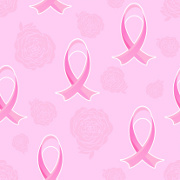 Photo: Getty Images
Photo: Getty Images
Where do you go for reliable, useful information about breast cancer now that we are in the age of hundreds of thousands of websites, Facebook pages and “tweets” on the subject?
I am delighted to be one of three panelists who will discuss on the subject in a free webinar put on by the HealthWorks Collective on Tuesday, Oct 25 - with transcripts available afterwards. The other panelists are leaders from the prominent Living Beyond Breast Cancer patient-advocacy group and the Johns Hopkins Breast Center. We all agree it is daunting for the new patient or their family members to know what to believe.
Of course, the place to start is with your own doctor and nurse and sites they recommend. Then there are major breast cancer non-profit organizations. But, before long, you look for community. Now that we know that breast cancer treatments need to be personalized to your own biology, how much can you take away from an online conversation with another patient who says do this or that? That’s the dilemma today, whom to believe?
The consensus of the panel is to leave personal treatment discussion to you and the health care team you choose. Second opinions are great too. But the benefit of hearing from other patients is more for psycho-social support. Another woman can give you their perspective, but no one should tell you what to do just because it was right for them.
As I cover in my book, The Web Savvy Patient, you also have to be sharp-eyed about people trying to sell your something online. They have an agenda: have you buy their product, come to their clinic, sign up for their seminar. You have to be savvy, even when breast cancer has you very worried.
As we now have the Internet world at our fingertips it’s easy to say that the day of relying on our doctors for information is over. But I don’t see it that way. While they are no longer our only resource for deciding what to do, they can still be our chief consultant. Bring questions to them, bounce things off of them or the nurse. And many clinics and hospitals have learning centers with information specialists who can help you evaluate information you see online.
Yes, online media has connected women worldwide (and some men too) for discussions and information about breast cancer. That’s a good thing. But it also now requires you to filter out what’s not useful or even harmful. There are many highly respected people who can help you.
I hope you can make the webinar or read the transcript afterwards so you can make the most of our new and ever expanding world of conversations about breast cancer.
About the author: Andrew Schorr is a medical journalist, cancer survivor and founder of Patient Power, a one-of-a-kind company bringing in-depth information to patients with cancer and chronic illness. Audio and video programs, plus transcripts, help patients make informed decisions to support their health in partnership with their medical team.
Patient Power is at www.PatientPower.info and on Facebook, YouTube and Twitter. Schorr is also the author of “The Web Savvy Patient: An Insider's Guide to Navigating the Internet When Facing Medical Crisis" found at www.websavvypatient.com/
Edited by Jody Smith





Add a Comment1 Comments
As a two time breast cancer patient (and survivor) I strongly agree with your article. If I were to listen to everyones advice,even though they're trying to be helpful, I would be spending 24-7 trying different supplements, vitamins, miracle waters etc... Bottom line is this-find a team of doctors you trust, listen to them, have faith in them, ask lots of questions, and then take other peoples advise with a grain of salt.
October 22, 2011 - 6:51amThis Comment